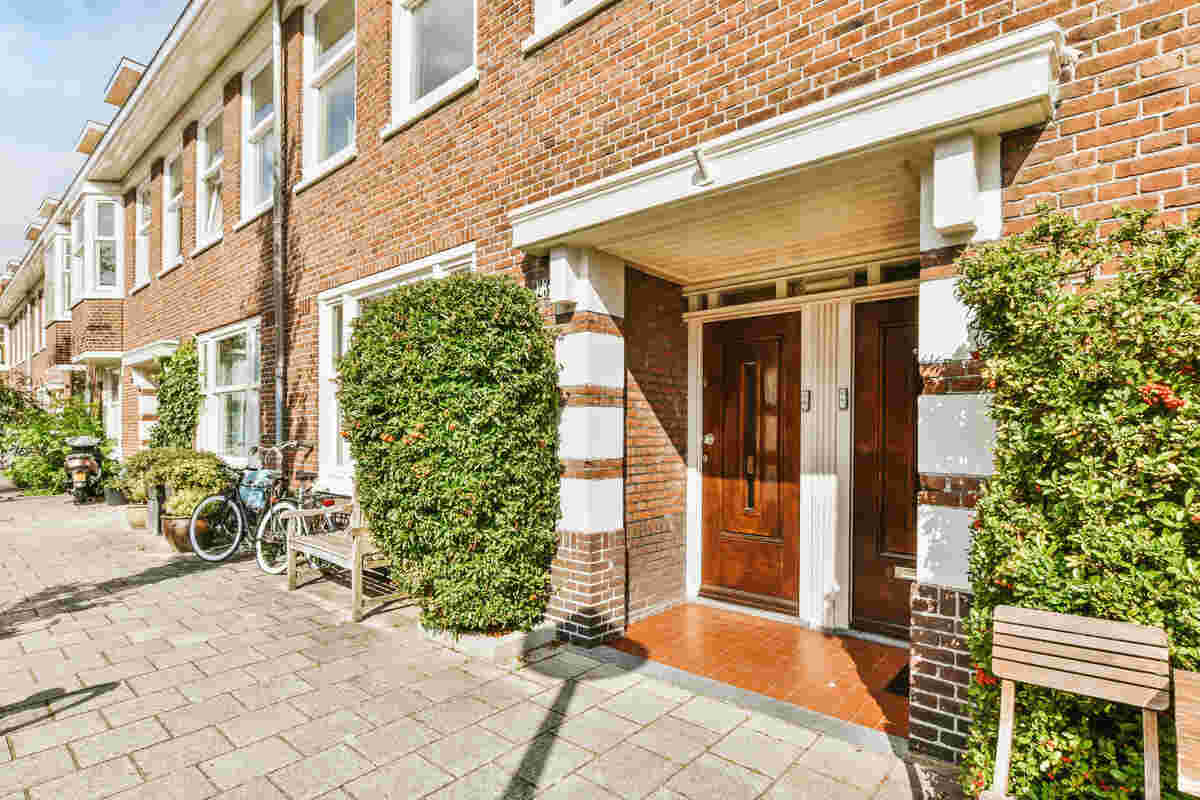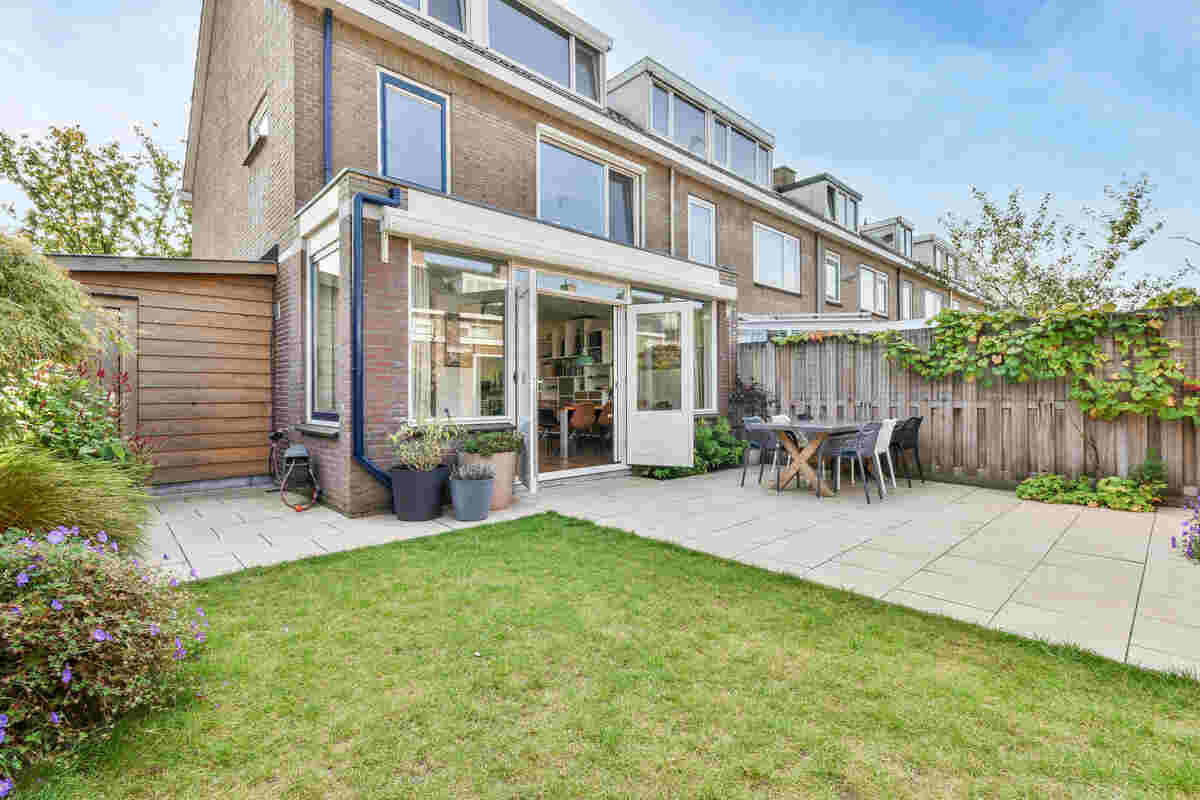The Pros and Cons of Townhouses (and how are they different from condos and apartments?)
June 9th, 2022 / Author: Zachariah PetersonAre you a first-time buyer comparing prospective properties? Or maybe you just can’t make heads or tails of the differences between townhouses and condos and apartments? Don’t worry, you’re not the only one and we’ve got you covered.
By the end of this article, you’ll understand what differentiates a townhouse from a condo (and a condo from an apartment). You’ll also learn about the different types of townhouses and what the advantages and disadvantages of owning one are. So let’s get started with the basics.
Townhouse Definition
So what is a townhome / townhouse? Townhouses are (generally) multi-story homes that have shared walls with the adjacent properties but have separate entrances. They are typically found in rows of similar townhouses, giving the row a uniform look.
An owner of a townhouse has ownership of both the land and the property that sits on it (this distinction will become important later). They also have the right to make any changes to the townhouse, provided the changes are in compliance with the applicable laws. Lastly, townhouse owners have the responsibility of maintaining the property.
A townhouse can also refer to a house located in a city or town, owned by someone that also owns property in the country. However, this has nothing to do with the type of buildings townhouses are, but is only a descriptive name based on the location and is not what we are discussing in this article.
Types of Townhouses

The traditional, and most common, type of townhouse is the one described above – another term is a rowhome. This is what you probably think of when someone mentions a townhouse. However, there are many subdivisions of townhomes based on the style and type of build.
For instance, you may come across terms such as two- or three-story towns (the term is rather self-explanatory, it’s based on the number of stories the townhouse has). Two types of townhouses that are becoming more popular and are different enough from the traditional type that it is worth mentioning are:
Back-To-Back Townhomes
A back-to-back townhouse is very similar to the traditional one, except that besides sharing the sidewall(s), it also shares a rear wall with another townhouse. Back-to-backs are usually more affordable than comparable traditional townhouses, so first-time homebuyers often choose them.
Stacked Townhomes
A stacked townhouse is more like a cross between a condo and a townhouse. As the name implies, it’s two townhouses stacked on top of each other. Like traditional townhomes, both units have separate entrances.
But unlike traditional townhomes, both are usually single-story units (which means that each unit has only one story, unlike a traditional townhouse where each unit has multiple stories on separate lots). Additionally, only one of the owners owns the land the building sits on or the owners share ownership.
Townhouse vs. Condo vs. Apartment
It can be difficult to make a distinction between a townhouse and a condo in every case. That’s because there are many similarities and a townhouse can be a condo, if you are only going by building style.
When you compare apartment-style condos and traditional townhouses, the difference is easy to see. A condominium is a large complex made up of individually-owned units, where you own the unit itself but nothing outside of it.
The land, the communal areas, and even the outside of the building is not owned by the individual condo owner. With a townhouse, you own both the land and the property on it, as we’ve mentioned earlier.
Where it gets a bit tricky is when a condominium is built as multiple separate houses. By appearance, the condos would appear to be townhouses, but the right of ownership to the unit and the property is not the same, nor are the responsibilities.
So, to simplify townhouses vs. condos:
- When you won a townhouse, you own the unit and the land it sits on; maintaining the property is your responsibility.
- When you own a condo, you own the airspace within a unit, but everything else is communal ownership; an HOA is responsible for the maintenance of the communal areas.
So, even if something looks 100% like a townhouse, but you own only the space within an individual unit, you technically own a condo. Now that that’s been cleared up, let’s quickly go over condo vs. apartment.
Condo vs. Apartment
Once again, the distinction is in ownership, not appearance or style. Apartments are rental properties that are owned by a corporation instead of a private owner. Typically, a whole apartment complex is owned by the same corporation. So:
- Condos are owned by private owners
- Apartments are owned by corporations
- Apartments are rental properties
The Advantages of Owning a Townhome

By now, you likely have a good idea about what the pros of owning a townhouse are, but let’s spell them out and make a few additional comparisons.
You Own the Land and the Property
When you own a townhouse as opposed to a condo, one of the primary advantages is that you own the entirety of the property. That means you can make changes, remodel, add parts, etc. as you see feet. On the condition that your actions comply with all applicable laws, of course.
Lower Purchase Cost(when compared to detached homes)
A townhouse in a similar location, with comparable square footage, and of a similar age and build will usually be cheaper than a free-standing home.
Less Maintenance (than for a single-family home)
This point is only true when you compare townhouses with free-standing homes, not condos. Townhouses are often located in HOA areas, which means that a lot of the maintenance is done by the HOA.
More Amenities
Because many townhouses are built as part of a development, you usually have access to many communal amenities. So you will have access to a pool, gym, laundry room, clubhouse, or whatever other amenities your townhouse development provides.
The Disadvantages of Owning a Townhome
Naturally, there are also cons to owning a townhouse, but it’s important what you compare it to.
More Maintenance (than for a condo)
Because you own the entirety of the property, the maintenance is on you. Even if your townhouse is part of an HOA, they’re not going to repair your leaky roof or damaged wall. Thus, it’s up to you to shoulder the costs.
Closer Neighbours (than in a detached home)
You’ll be sharing walls with your neighbors, there’s just no other way around it. Of course, depending on your neighbors and your relationship with them, this might not be a con of a townhouse at all. However, if you have difficult neighbors, you’ll be forced to find a way to deal with them.
HOAs
Some people simply don’t like living under strict rules that many HOAs enforce. And there’s a plethora of horror stories regarding HOAs. But other people like the structure that an HOA provides.
Because most townhouses are parts of an HOA, you need to account for it. Plus, don’t forget that an HOA also charges fees. So whether this is a disadvantage, has no impact, or is actually an advantage depends on your perspective.
Considering Selling Your Home?
Does owning a townhouse seem appealing to you? More than likely, you will need to sell your old home before you can afford a new one. If this is the case, contact SleeveUp Homes. We will buy your house as-is and pay top dollar, and you don’t need to hold any showings.
On top of that, because you are selling the house directly to us, you won’t be paying any realtor commissions and we will take care of the closing costs. But there’s no need to rush – request a no-obligation cash offer and see what you can get for your house. If you like the offer, you can close in as little as 7 days.
SELL
YOUR HOUSE
If you want to sell fast and are worried about how long the traditional process takes, and the commission and fees involved, consider working with SleeveUp Homes.





 view all blogs by this author
view all blogs by this author Cesar Gomez (85 blogs)
Cesar Gomez (85 blogs)